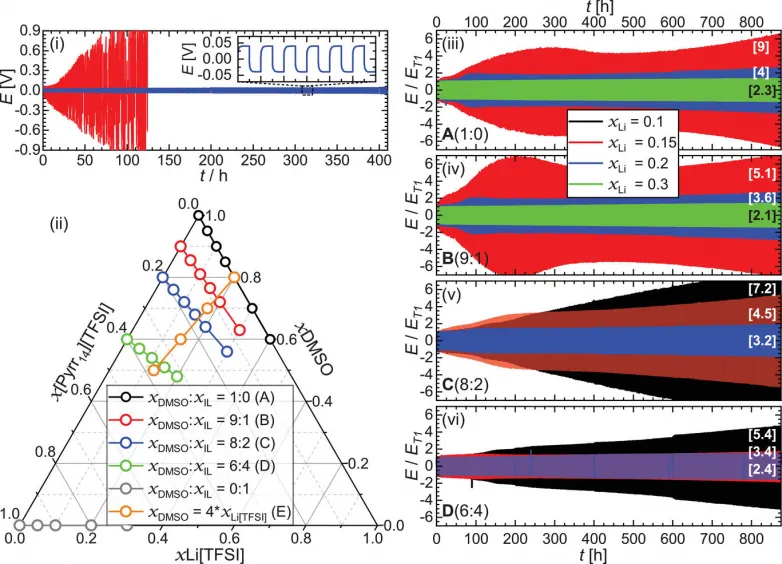Significant development in lithium-air battery development
- Research led by the University of Liverpool, in collaboration with Johnson Matthey PLC and also Loughborough University, is making substantial progression in the advancement of stable and also useful electrolytes for lithium-oxygen batteries.

The lithium-oxygen (Li-O2) battery (or lithium-air battery), containing Li-metal and also a permeable conductive structure as its electrode's launches power from the reaction of oxygen from the air as well as lithium. The technology remains in its infancy, yet in theory can supply much higher energy storage space than the conventional lithium-ion battery.
In a paper published in the journal Advanced Functional Materials, Professor Laurence Hardwick from the University of Liverpool's Stephenson Institute for Renewable Energy (SIRE) and also associates thoroughly characterized as well as developed electrolyte formulations that considerably lessens side responses within the battery to make it possible for improved longer cycle stability.
According to lead author of the paper, Dr. Alex Neale who is also with SIRE, the research study shows that the sensitivity of specific electrolyte components can be turned off by exact control of component proportions.
Dr. Neale stated: "The capability to exactly formulate the electrolyte making use of readily-available, low volatility components enabled us to specially tailor an electrolyte for the requirements of metal-air battery modern technology that provided substantially better cycle stability and also performance."
" The results from our research study really reveal that by understanding the exact control atmosphere of the lithium ion within our electrolytes, we can connect this straight to accomplishing considerable gains in electrolyte security at the Li metal electrode interface as well as, as a result, improvements in actual cell performance."
Dr. Pooja Goddard from Loughborough University's Department of Chemistry said: "It was interesting to see through making use of both calculations and experimental data we had the ability to recognize the crucial physical criteria that allowed the formulations to come to be secure against the lithium metal electrode interface."
The developed electrolytes supply new benchmark formulas that will certainly support ongoing investigations within our study teams to comprehend and develop new, and practically feasible, cathode architectures to minimize round-trip inadequacies and also additional expand cycle lifetimes.
Enrico Petrucco from Johnson Matthey PLC said "This work exemplifies a beneficial electrolyte layout method for Li-air batteries underpinned with excellent science within a wonderful partnership. This moves us another step closer towards useful courses to get over complicated Li-air difficulties."
The collaborative study between both University research study groups in Liverpool as well as Loughborough and also Johnson Matthey PLC was implemented by support from an Innovate UK Give that makes it possible for industry and academia to interact to take on innovation focused study obstacles.
Also read

